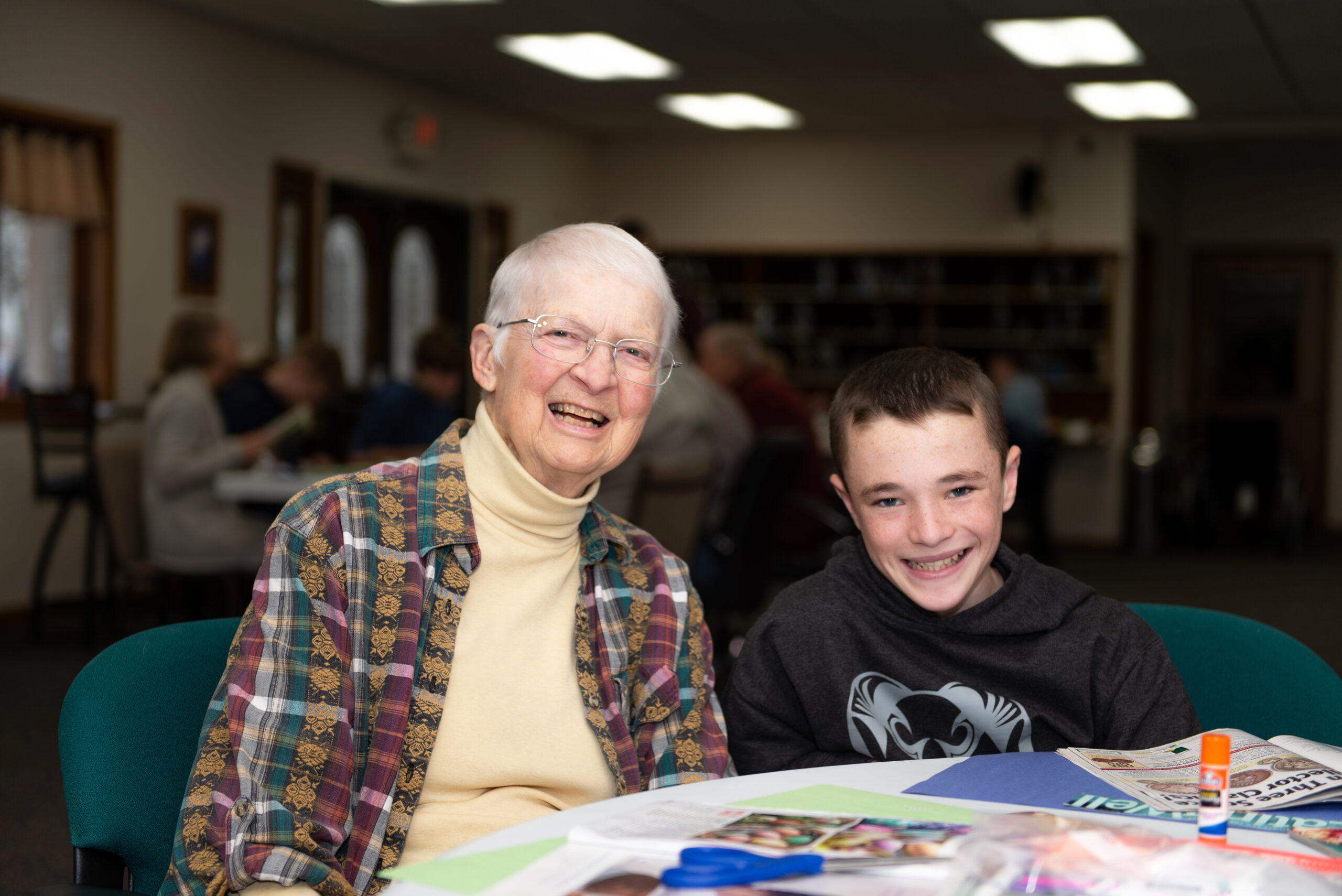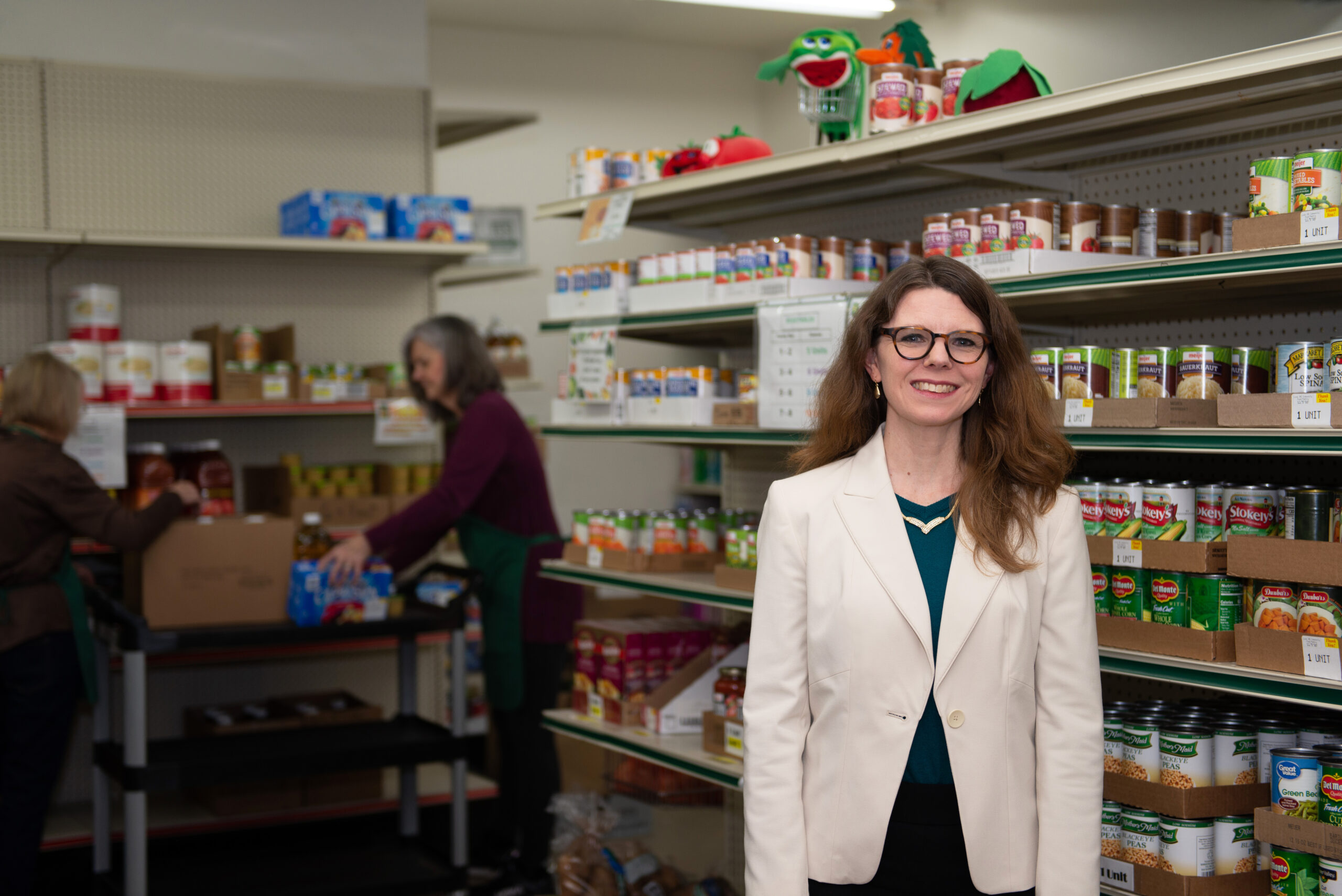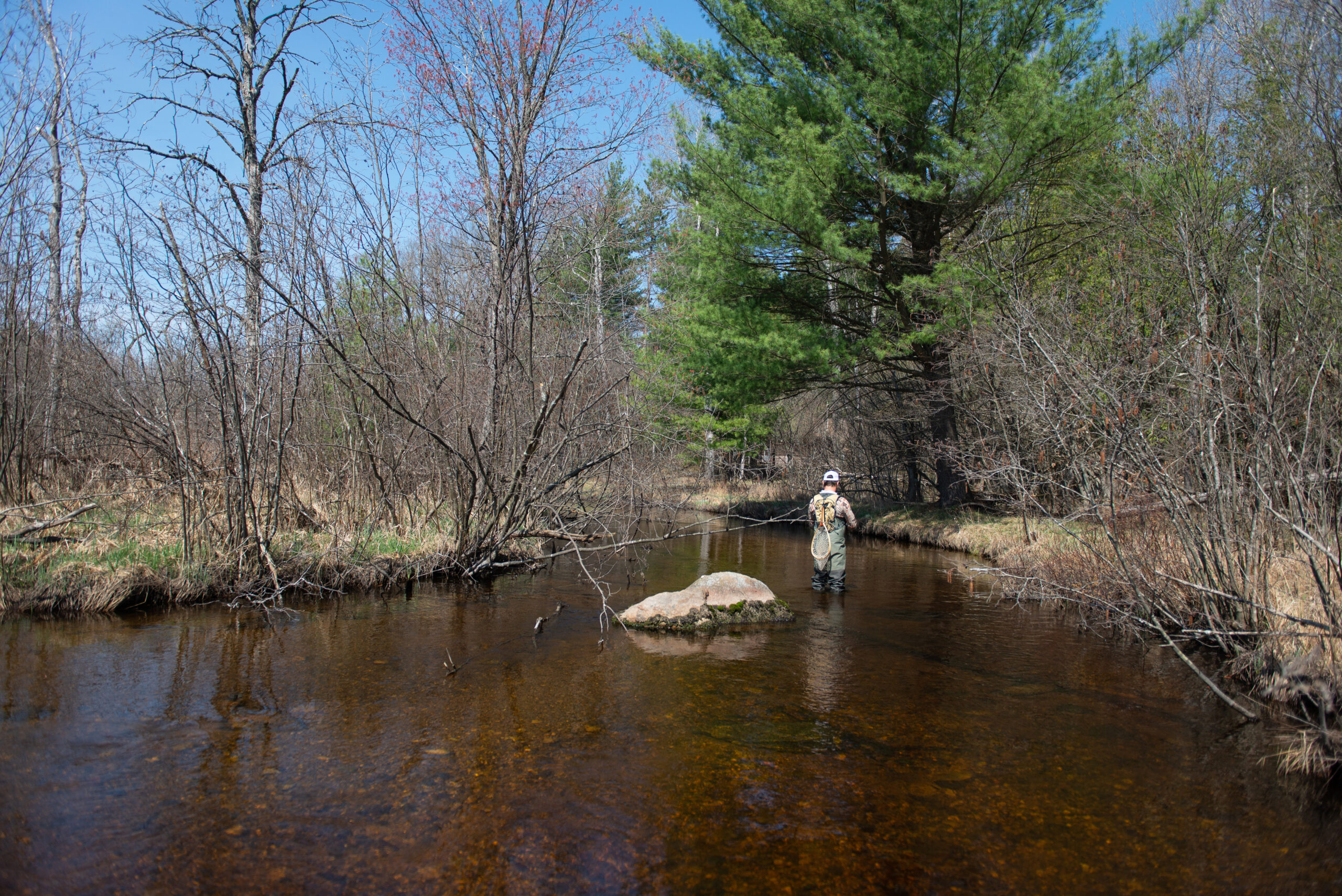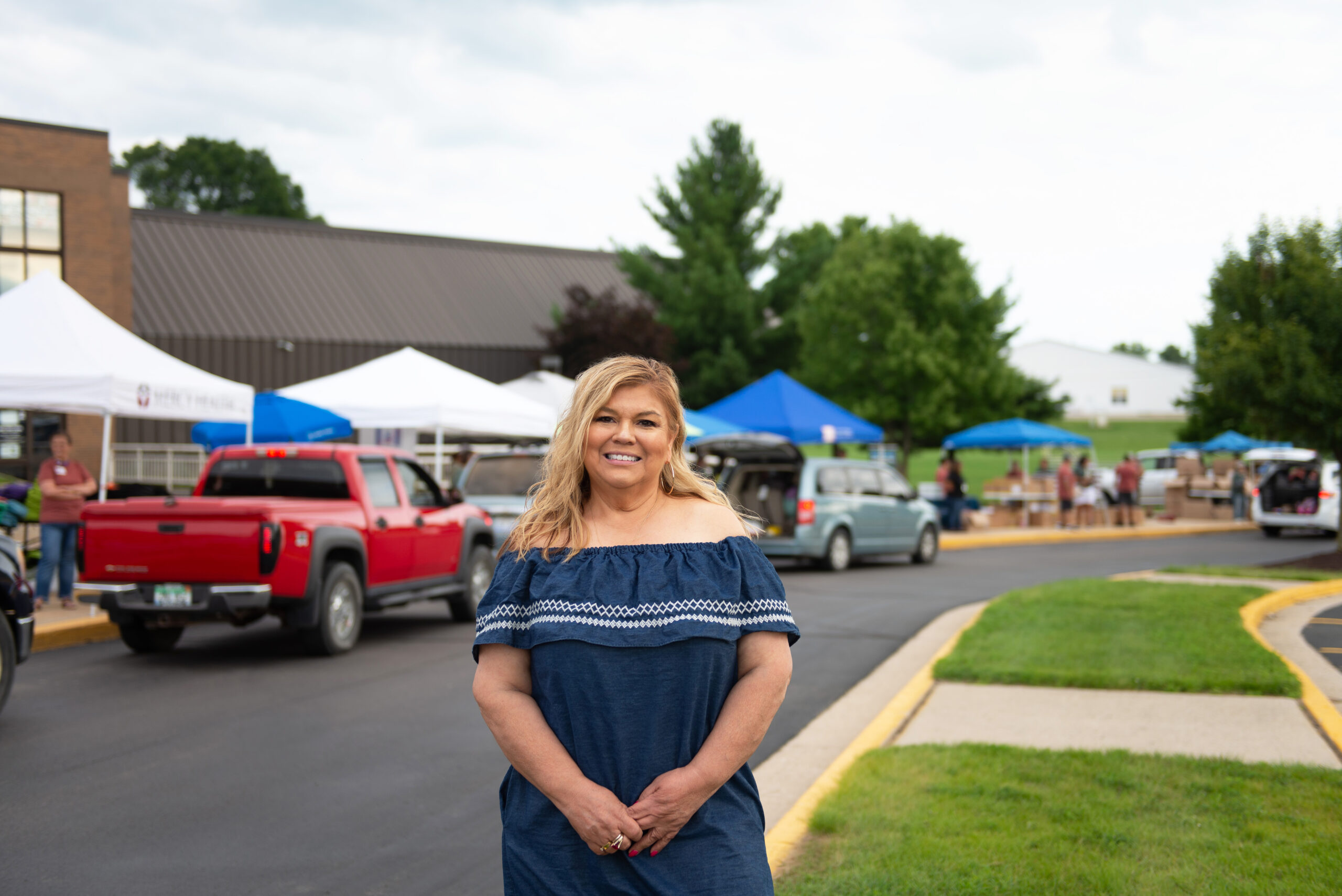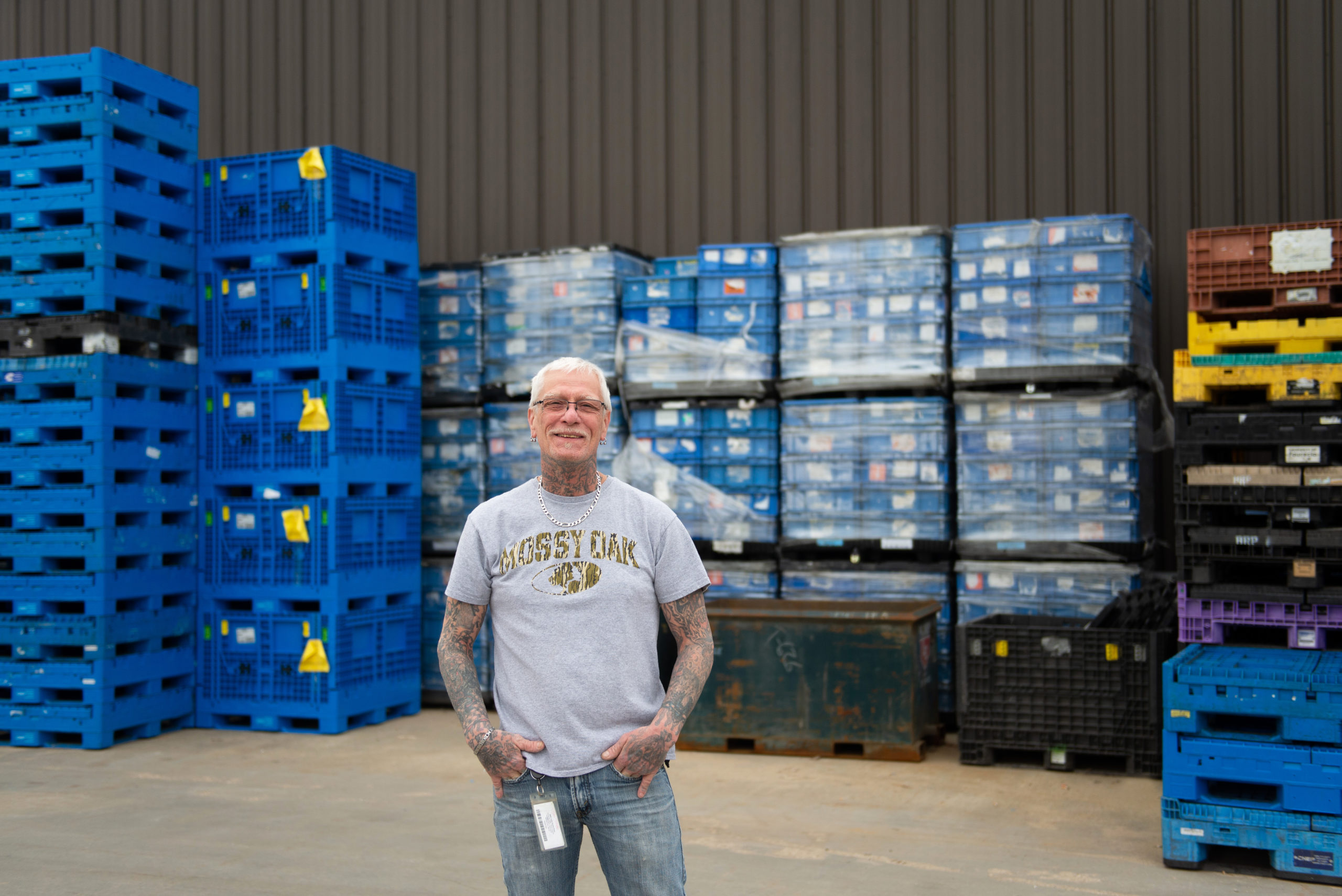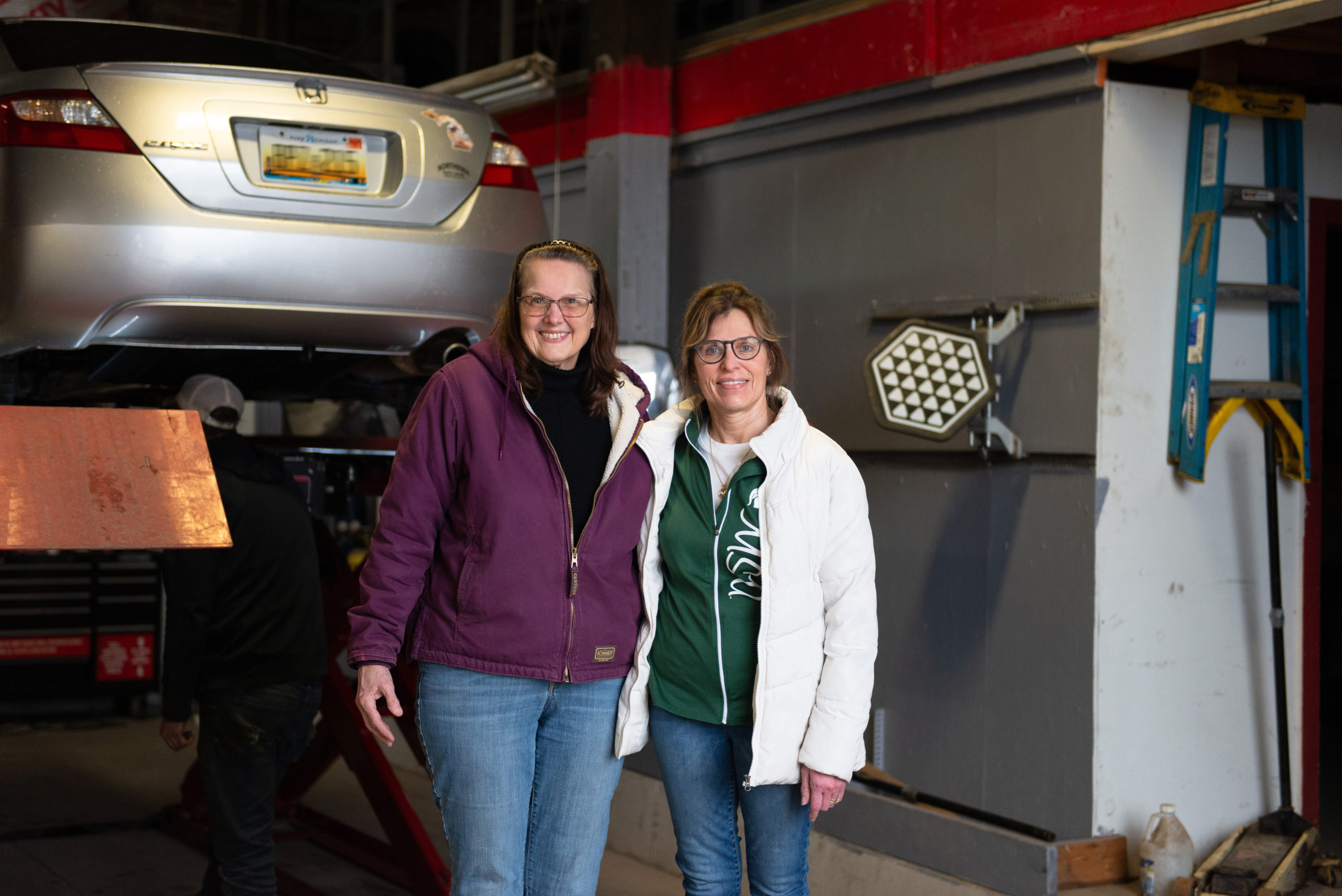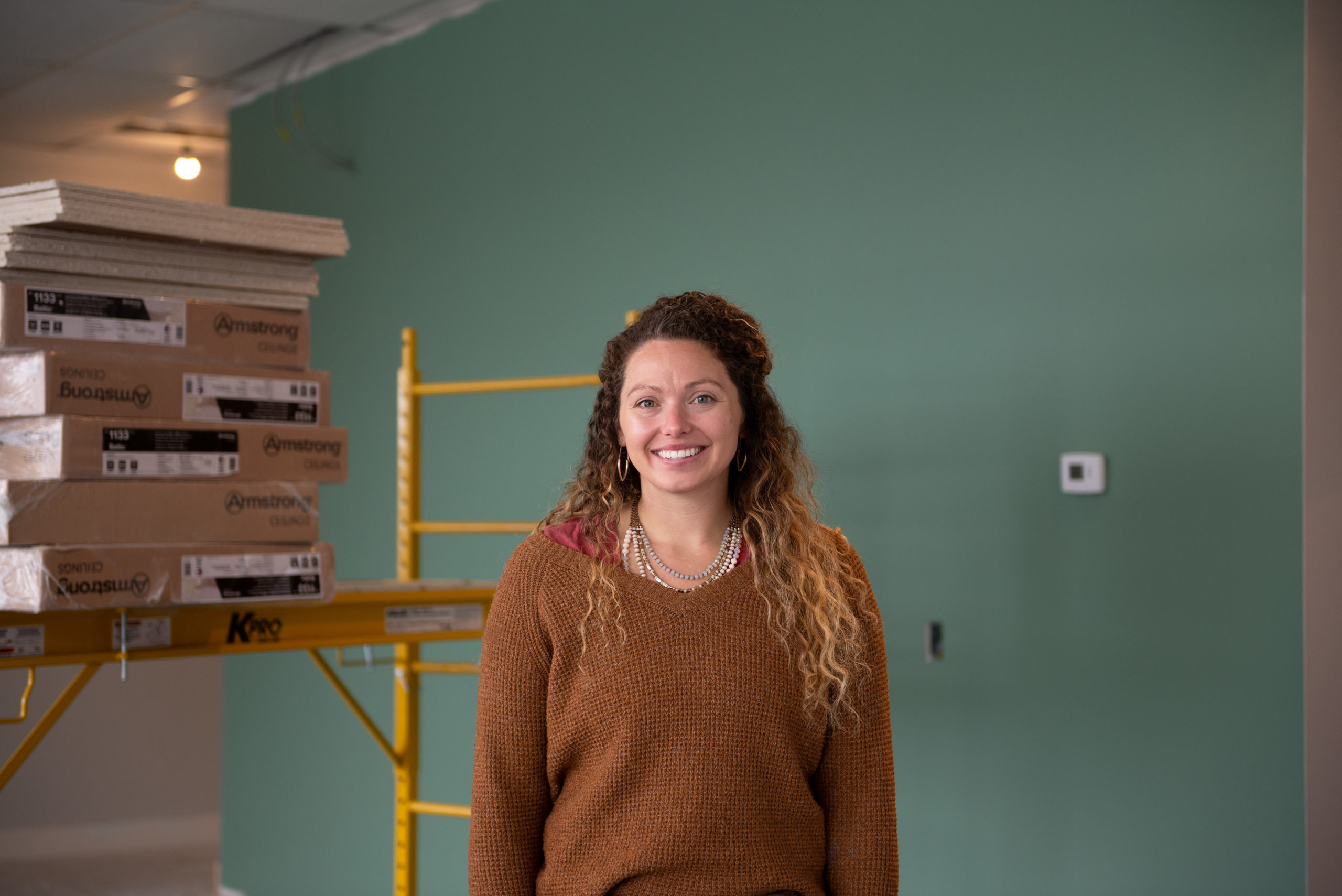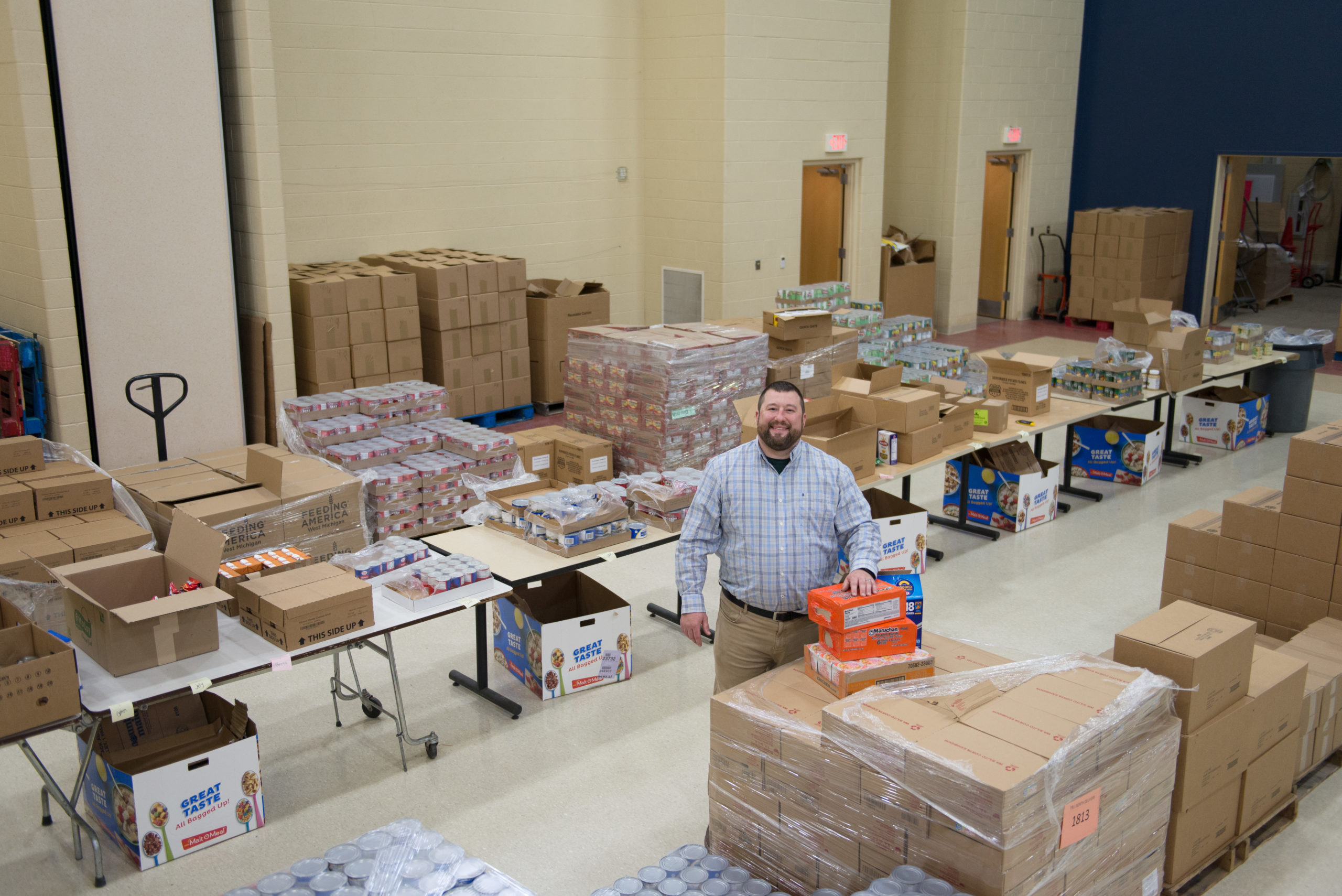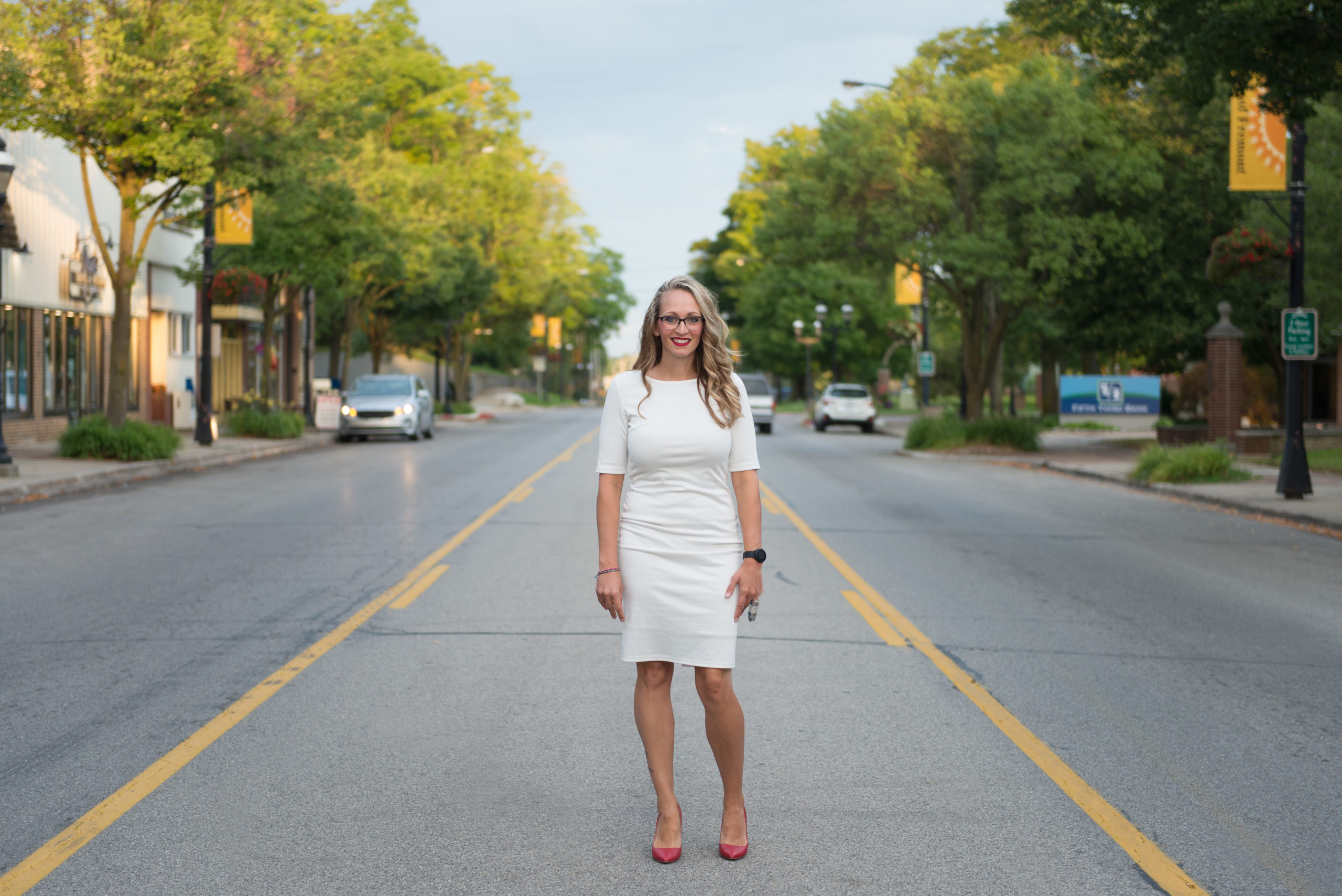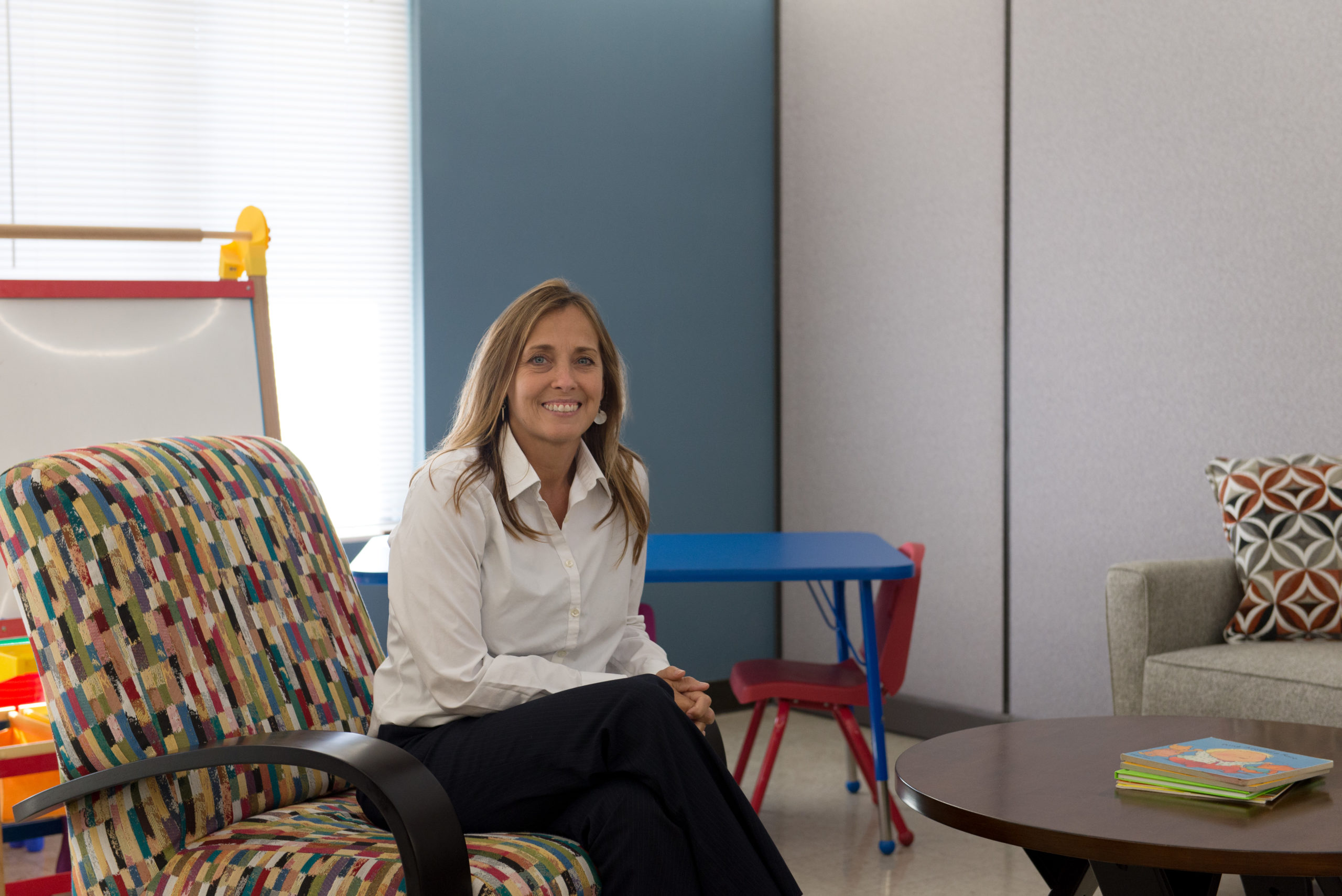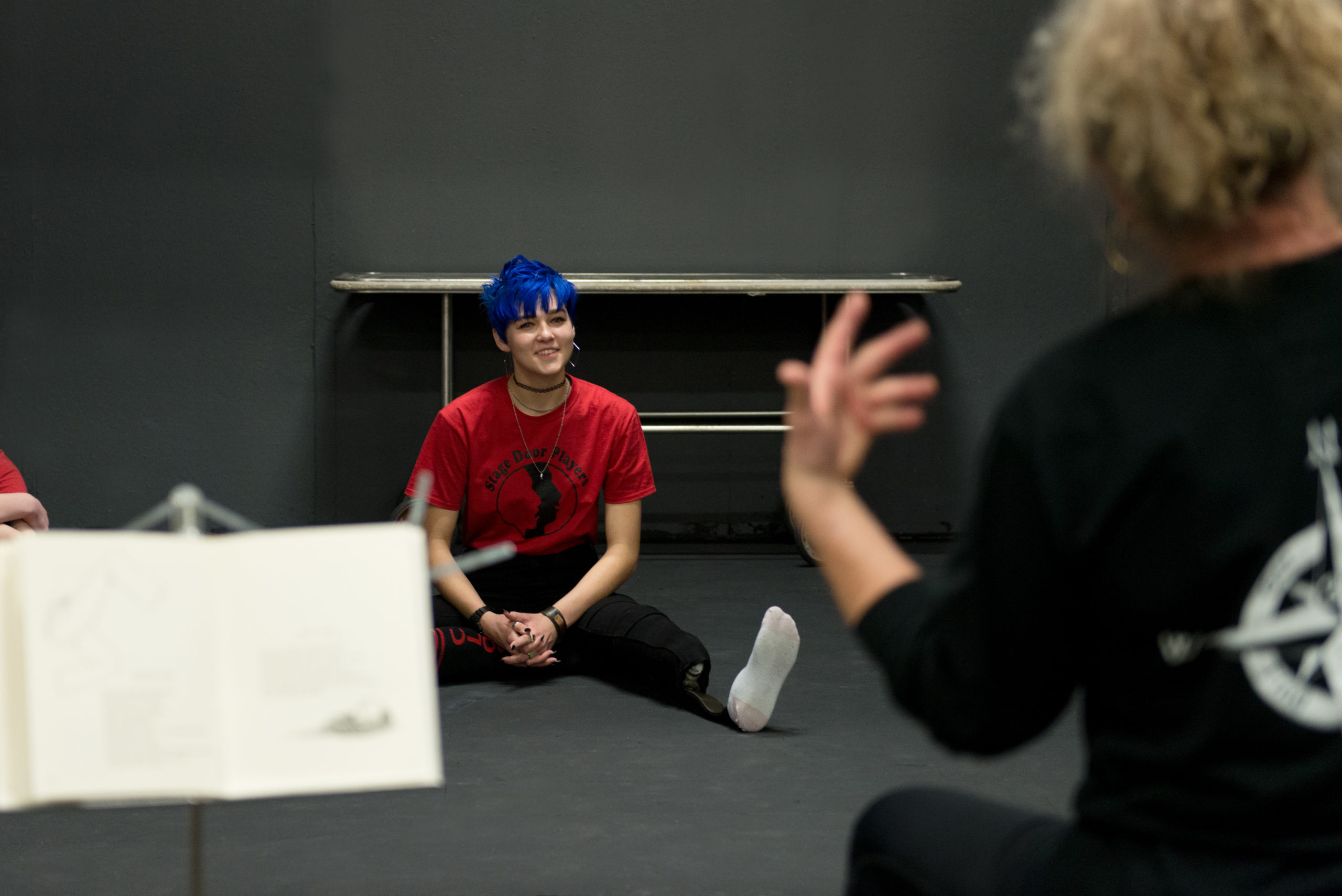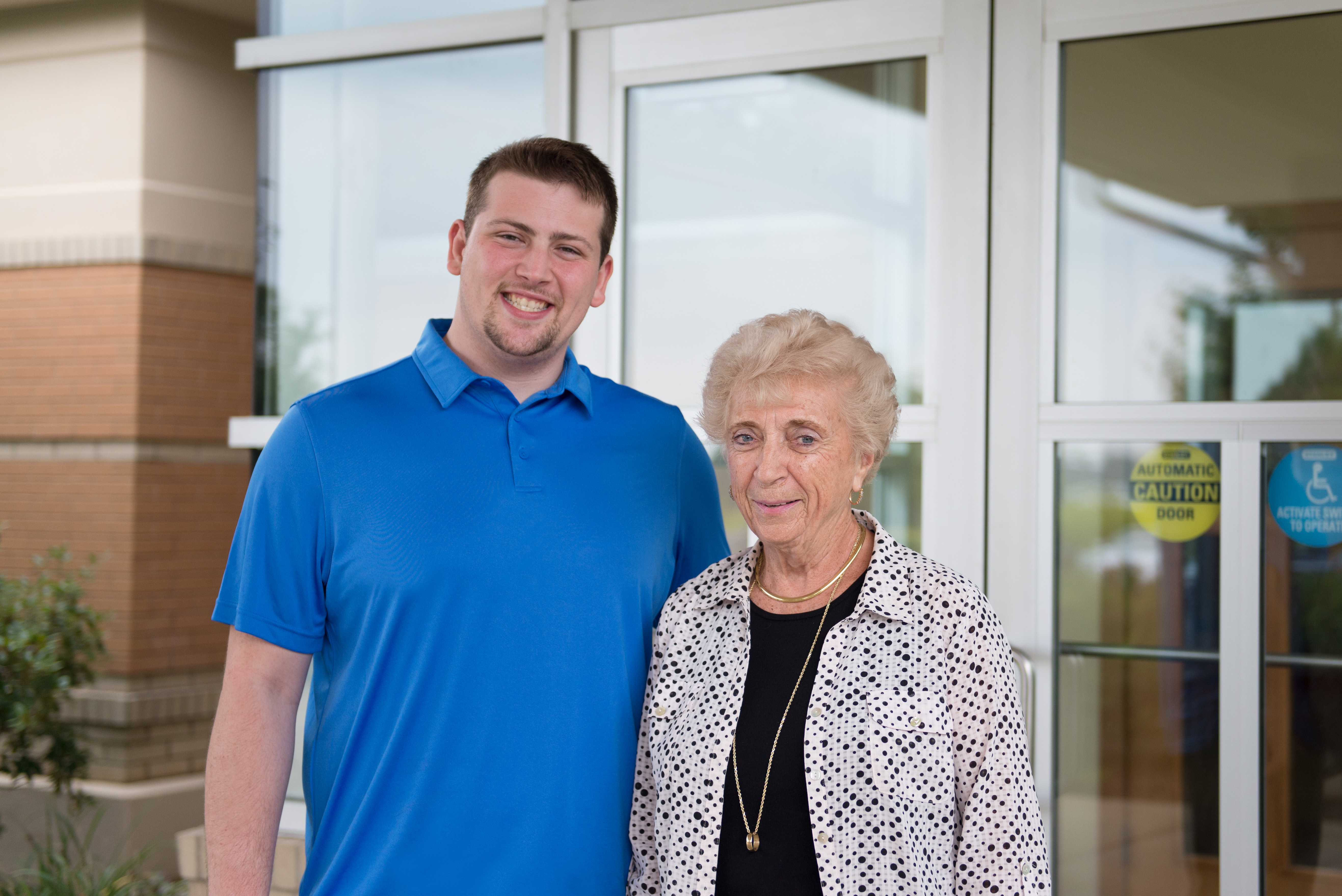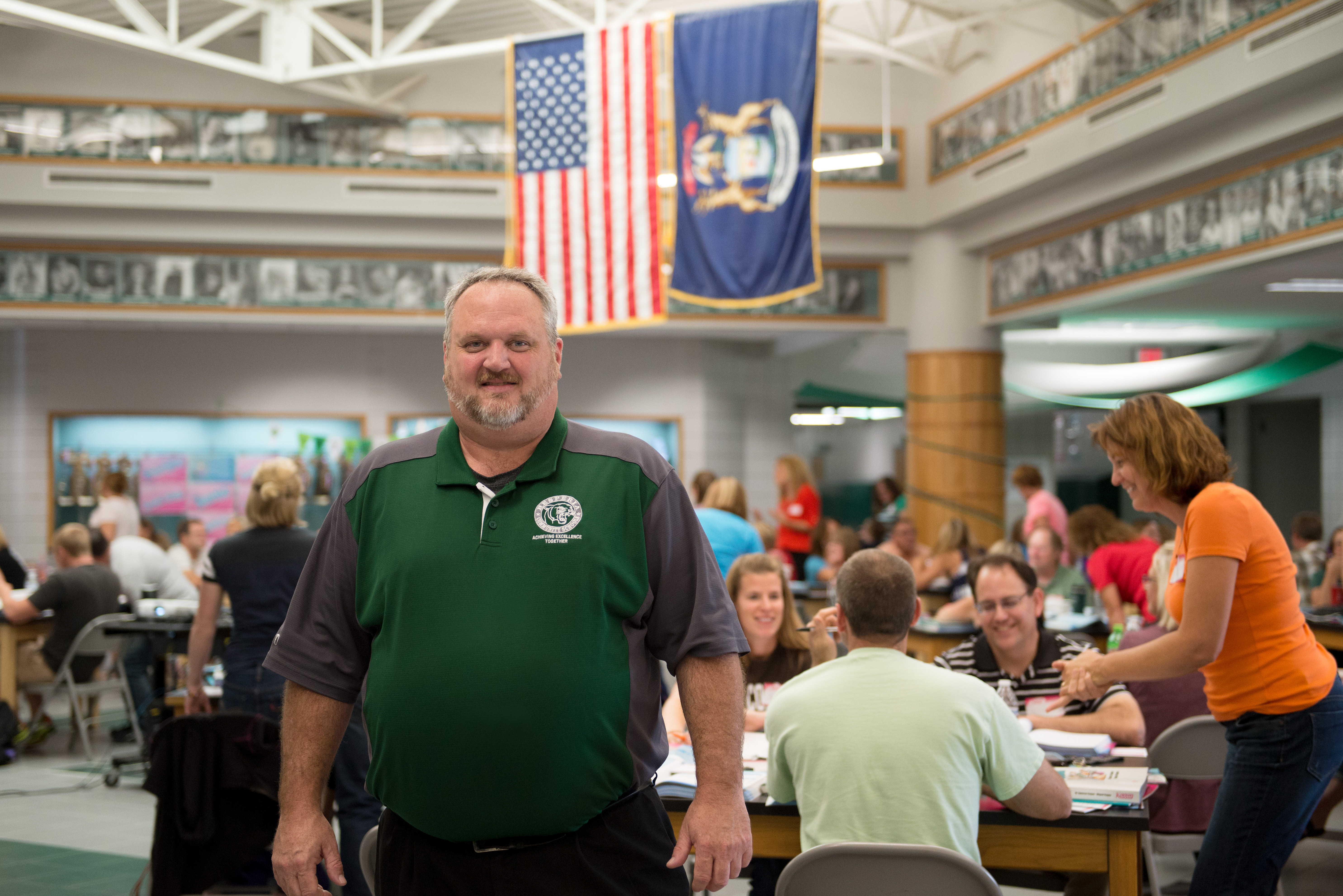Since 2016, Wellspring Adult Day Services has provided a safe place for older adults to socialize while offering respite for their regular caregivers. Housed at Reeman Christian Reformed Church, Wellspring guests enjoy conversation, lunch, and a balance of stimulating activities and rest. Programming combats social isolation and helps guests stay active and healthy.
A new program has given Wellspring an opportunity to make an even greater impact not just on their guests, but on others in the community as well. They partnered with Fremont Christian Schools and the Community Foundation’s Bridging Generations Fund to create Grandfriends.
Through Grandfriends, eighth graders from Fremont Christian School join Wellspring once a month for lunch, stories, and activities. Participants are matched based on similar interests, and the small groups play games, talk, do crafts, and teach each other. Before the monthly activities began, Wellspring staff also visited the school to teach students about the aging process, memory loss, and what to expect on their first visit.
“Our guests’ social circles continue to grow smaller as they age,” said Allie Maat, Wellspring’s program director. “This program gives them the opportunity to expand their circle and make new friends and new memories. It gives our guests something joyful to look forward to, and it is so great to see the compassion the youth have developed for our guests.”
Staff has watched friendships, empathy, and understanding grow across the generations. They write letters, share stories, and have even attended school functions together.
“We have seen the perception of each generation change, having more acceptance and empathy as well as an increase in understanding and respect,” said Allie. “The most rewarding part of the program has been to witness the building of these intergenerational relationships. As they gain a greater understanding of the different generations, we feel this builds a stronger community.”

